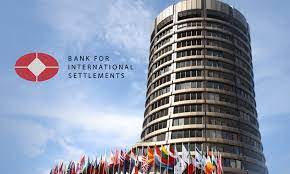Pension funds and other “non-bank” financial institutions now have more than $80 trillion in secret, off-balance sheet dollar debt in the form of FX swaps, according to a warning from the Bank for International Settlements (BIS).
The BIS, known as the central bank to the world’s central banks, voiced the worries in its most recent quarterly report, where it also stated that this year’s market turmoil had, for the most part, been handled without many significant complications.
After repeatedly urging central banks to take decisive action to reduce inflation, it adopted a more measured stance this time and ignored the ongoing issues with the cryptocurrency market and the turmoil on the UK government bond market in September.
The “blind spot” in FX swap debt that might put decision-makers in a “fog” was its key caution, though.
There has been a history of issues with FX swap markets, when, for instance, a Dutch pension fund or a Japanese insurer borrows dollars and lends euro or yen in the “spot leg” before subsequently repaying them.
The global financial crisis and the COVID-19 pandemic, which caused havoc and forced, powerful central banks like the U.S. Federal Reserve to step in with dollar swap lines, caused funding shortages for them.
According to the BIS, the estimated “hidden” debt of more than $80 trillion exceeds the stocks of USD Treasury notes, repo, and commercial paper put together. In April, deal volume averaged roughly $5 trillion per day, or two thirds of daily global FX turnover.
It calculated that dollar commitments from FX swaps are now treble their on-balance sheet dollar debt for both non-U.S. banks and non-U.S. “non-banks” such pension funds.
The key problem, according to the Switzerland-based institution, is the lack of direct information about the scope and location of the problems. “The missing dollar debt from FX swaps/forwards and currency swaps is huge,” it said.
“Policies to reestablish the seamless flow of short-term dollars in the financial system,” such as central bank swap lines, “are set in a fog during times of crisis.”
The analysis also examined the longer-term trends on the market as a whole.
BIS officials have been vocally urging central banks to raise interest rates aggressively as this year’s inflation spike has taken hold, but this time they did so in a more subdued manner.
When asked if the tightening cycle might be coming to an end in 2023, Claudio Borio, head of the BIS’ Monetary and Economic Department, responded that it would depend on how the situation developed. He also pointed out the challenges posed by high debt levels and the lack of certainty regarding how sensitive borrowers are currently to rate increases.
The straightforward response is that one is closer than one was at the beginning, but we are unsure of how far central banks will need to advance.
Inflation was the enemy, according to Borio, and it was well-known. But we haven’t been fighting this struggle for very long.
The findings from the report’s most current global FX market study were the subject of other sections.
According to estimates, there is a daily risk of $2.2 trillion worth of currency trades not settling because of problems between counterparties, which might jeopardize financial stability.
The amount at risk has increased from $1.9 trillion three years ago, when the previous FX survey was conducted, to approximately one third of the total deliverable FX turnover.
Additionally, FX trading is moving away from multilateral trading platforms and onto “less visible” venues, which is impeding regulators’ ability to “appropriately supervise FX markets,” according to the report.
Hyun Song Shin, the bank’s head of research and economic adviser, contrasted the recent crypto market issues—including the failure of the FTX exchange and the crashes of the stable coins TerraUSD and Luna—with most banking crashes.
Many of the digital currencies being sold, according to him, are “DINO – decentralized in name only,” and the majority of their associated transactions go through conventional middlemen.
Shin said, “This is basically people taking deposits in unregulated banks,” and that it was largely due to large leverage and maturity mismatches, much like during the financial crash more than ten years ago.
The incident has demonstrated that despite operating under the guise of being decentralized crypto is actually quite centralized in many ways.


















